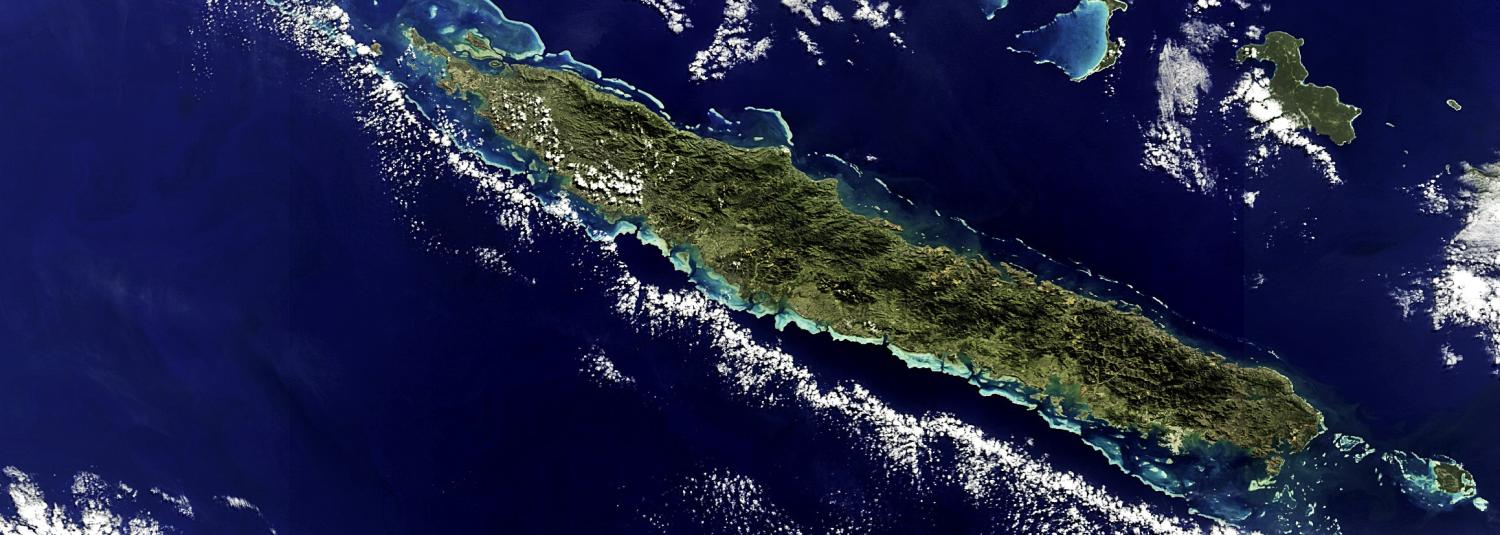The results of the French legislative elections are both good and bad news for New Caledonia but it's mainly good. While uncertainties remain at the national level, locally the hand of the strongest and most conciliatory pro-France group in New Caledonia has been strengthened, with a respectable showing by the mainstream independence group, as preparations for the November 2018 referendum begin in earnest.
After his massive Presidential win, Emmanuel Macron has now led his fledgling party En Marche (EM) to a strong majority in France’s National Assembly, controlling 350 of the 577 seats, albeit on a basis of historically low electoral participation (only 42.64% voted in the second round).
On the negative side for New Caledonia, while EM’s solid majority obviates some instabilities of 'cohabitation' (between the President and an Assembly of the opposite complexion), uncertainties remain given the lack of an EM party structure, which will inevitably impinge on the President’s ability to deliver his program. The engagement of the President has always been necessary for forward steps to be taken at fragile stages of New Caledonia’s political development. Macron has never visited the Pacific territories and has a big agenda which will take priority, just as referendum preparations get underway.
On the plus side, Macron’s comments on New Caledonia have been relatively positive, pledging to bring to fruition the promised independence referendum. His inevitable statement of support for remaining with France was couched carefully: he preferred New Caledonia to stay 'within the national community', leaving the way open for different forms of dependence on France. In his first weeks he has been, encouragingly, taking advice from respected founding fathers of the Matignon/Noumea Accords, Alain Christnacht and Thierry Lataste. And EM did not run its own nominees against local legislative candidates.
Within New Caledonia, the electoral results represent the best outcome, given serious divisions within the loyalist parties that favour staying with France. Loyalists traditionally win the legislative votes because pro-independence parties see participation in national elections as at odds with their independence objective. This time, the loyalist divisions were profound, leading to thirteen candidates (seven loyalist) contesting the first (Noumea/Islands) constituency and nine candidates (five loyalist) in the second (Northern province/the bush).
The result, with Calédonie Ensemble (CE) winning both seats, is a stabilising one. CE is the largest pro-France group, occupying 15 of the 29 loyalist seats in the 54-member local Congress that was elected in 2014. But it has faced consistent opposition from numerous breakaway groups, most of whom stood against the CE candidates in each constituency.
Despite historically low participation rates (33.94% in the Noumea and 37.17% in the Northern constituencies in the first round; 38.01% and 52.45% respectively in the second), CE’s win by Philippe Dunoyer, with 59.15% in the Noumea constituency, and by Philippe Gomès, at 54.95% in the North, consolidates CE’s power and sends a hopeful message for the referendum preparations under way. This is because, among the range of loyalist views about the referendum, it is CE that propounds dialogue with the independence groups, and agreement on common values for the future before the referendum is held. Moreover, a number of rival loyalist groups who lost the first round backed the CE in the second round, laying a basis for the CE to reunite the dissenters as the real work for the referendum begins. Both Dunoyer and Gomès in their victory comments referred to the need for unity amongst all loyalists, and for dialogue with independence groups, while pledging to take referendum preparations seriously.
For its part, the main independence group that contested in both constituencies did not fare too badly. The Noumea constituency is dominated by Europeans so the wipe-out of the Palika-UNI candidate in the first round was no surprise. However, in the Northern/bush constituency, Palika-UNI’s Louis Mapou got the most votes in the first round (30.08% to Gomès CE 23.94%), strengthened by loyalist division. By the second round, he won 45.05% to Gomès 54.95% - a very good showing. Like the second round of the Presidential elections, this result shows the capacity of the independence groups to attract support and to profit from loyalist division, even though one large independence group (Union Calédonienne, UC) did call for a boycott. Despite overall low participation and the UC boycott call, participation rates in the second round in mainly independence and Kanak areas such as Hienghiene (55.07%), Yate (59.7%) and others exceeded that in mainly European and loyalist Noumea (43.42%).
The new loyalist alliance backing Gomès will be tested in coming months. Unity pacts amongst loyalists have been of short duration and may affect the composition of the local Congress. Arcane technicalities now require the new local Cabinet to be reconstituted, a source of instability in the past. Retaining unity and focus on the referendum preparations when the French Senate elections are in September will also be a challenge, with the referendum deadline just seventeen months away.

